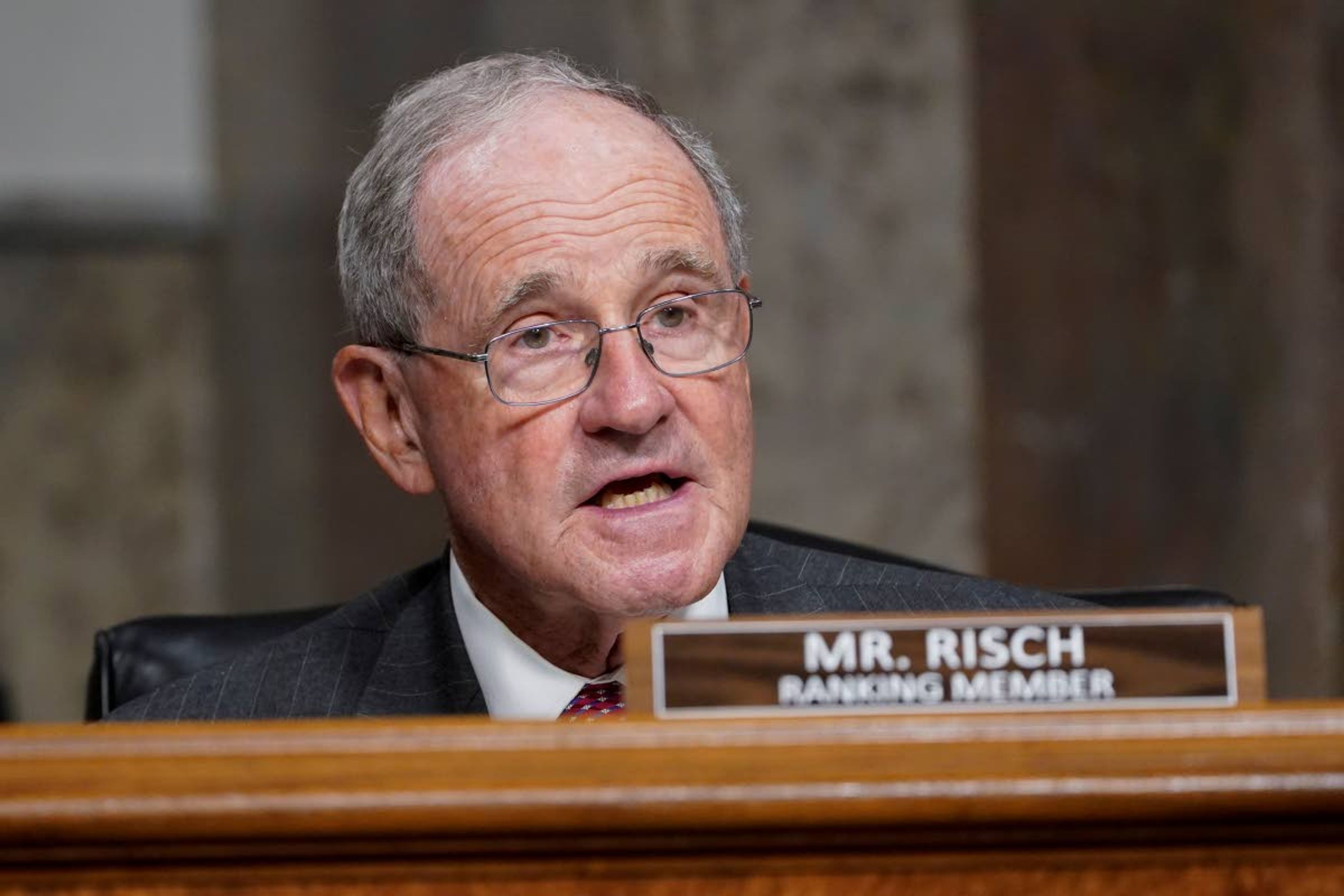JEERS ... to Sens. Mike Crapo and Jim Risch, both R-Idaho.
Wednesday, they joined most of their Republican colleagues by blocking a federal right to contraceptives. Only two GOP members of the Senate — Maine’s Susan Collins and Alaska’s Lisa Murkowski — joined with Senate Democrats. But the move fell nine votes short of clearing the threshold for cloture.
Along with 20 of their fellow Republicans, Crapo and Risch accused Democrats of “fear mongering on this important issue to score cheap political points.”
Don’t believe it. Contraception is the next logical target for those who would impose their own judgment over the individual choices of others.
The same principle that the U.S. Supreme Court rejected in overturning Roe v. Wade — the right to privacy — fortifies an earlier court decision affirming access to contraception. As the court was abandoning 50 years of reproductive freedom, Justice Clarence Thomas left open the door to reconsidering the prior ruling on contraception.
The same theory cited by anti-abortion rights advocates — that life begins at conception — can be targeted against hormonal contraceptives, IUDs and the morning-after pill because a fertilized egg is blocked from implanting in the uterine wall.
As reported by Politico, the “Project 2025” blueprint spelling out a second Trump administration is likely to “require coverage of natural family planning methods and remove requirements that insurance cover certain emergency contraception.”
Last month, Republican Virginia Gov. Glenn Youngkin vetoed a bill to protect access to contraception.
Nor is any of this lost on the public. In its poll taken in March, Kaiser Family Foundation found that 21% believe the right to contraception is threatened and likely to be overturned. Another 34% are “not sure” if the right is threatened or secure. That leaves less than half of the adults — 45% — in the United States who have any confidence that the courts or politicians will leave the right to contraception in place.
What could explain Crapo and Risch opposing this bill? Haven’t they learned anything watching their Republican colleagues in the Legislature interfere with the private health care decisions made by Idaho women and their families?
This is 2024, not 1924.
CHEERS ... to Annabelle Jenkins.
In a dignified but firm way, the 18-year-old stood up against the book banning taking place across the Gem State, including in her own West Ada School District.
As she walked the line during graduation exercises at the Idaho Fine Arts Academy last month, Jenkins pulled out a graphic novel adaptation of “The Handmaid’s Tale” and attempted to hand it to school Superintendent Derek Bub.
Bub refused to accept it, so she left it at his feet.
Nothing Jenkins did disrupted the commencement of her fellow graduates. But it underscores a point.
The graphic novel is among 10 books that West Ada yanked from its libraries a year ago. Others include “Collected Poems 1947-1980” by Allen Ginsberg and “Wicked: The Life and Times of the Wicked Witch of the West” by Gregory Maguire.
Active in her local libraries for years and planning to pursue a career in the profession, Jenkins resisted the book banning taking place around her. She lives in a community where a group calling itself Concerned Citizens of Meridian sought to dissolve the Meridian Library District. And she lives in a state where the influence of one special interest group, the Idaho Family Policy Center, prevailed over the views of most Idahoans by pressuring the Legislature to place a bounty on libraries if their collections contain materials someone deems “harmful” to minors. Already, the Donnelly Public Library has essentially imposed an “R” rating at its entrance to avoid legal jeopardy.
Jenkins’ story went national. The Washington Post interviewed her. And a video of the graduation incident posted on TikTok generated 24 million views and more than 15,000 comments.
“I have never desired to go viral, but if I was ever going to, I’m glad that it is for something so deeply important to me,” Jenkins told The Idaho Statesman’s Becca Savransky. “More than anything, I just want people to talk about it. I want to generate conversation.”
Mission accomplished.
JEERS ... to state Rep. Josh Tanner, R-Eagle.
Gov. Brad Little’s Idaho Launch program is reaching an underserved group of young people — those who struggled through school but still managed to graduate. Launch is attracting interest from students who had a grade point average below the state mean of 2.9.
By offering up to $8,000 to high school grads, Launch was meant to provide young Idahoans with a pathway out of dead-end jobs while answering industry’s need for more skilled workers. Idaho Workforce Development Council executive director Wendi Secrist expects to issue 9,250 Launch grants this year.
Who could argue with that?
Tanner, that’s who.
During a meeting of the Joint Finance-Appropriations Committee, Tanner griped about helping Idaho kids with low grades. “I don’t want to continue to pay for them to go on.”
What matters more to Tanner? Getting a better rating from the Idaho Freedom Foundation, which labored to sink the Launch program, or meeting the needs of many ordinary Idaho young people?
Obvious, isn’t it? — M.T.












